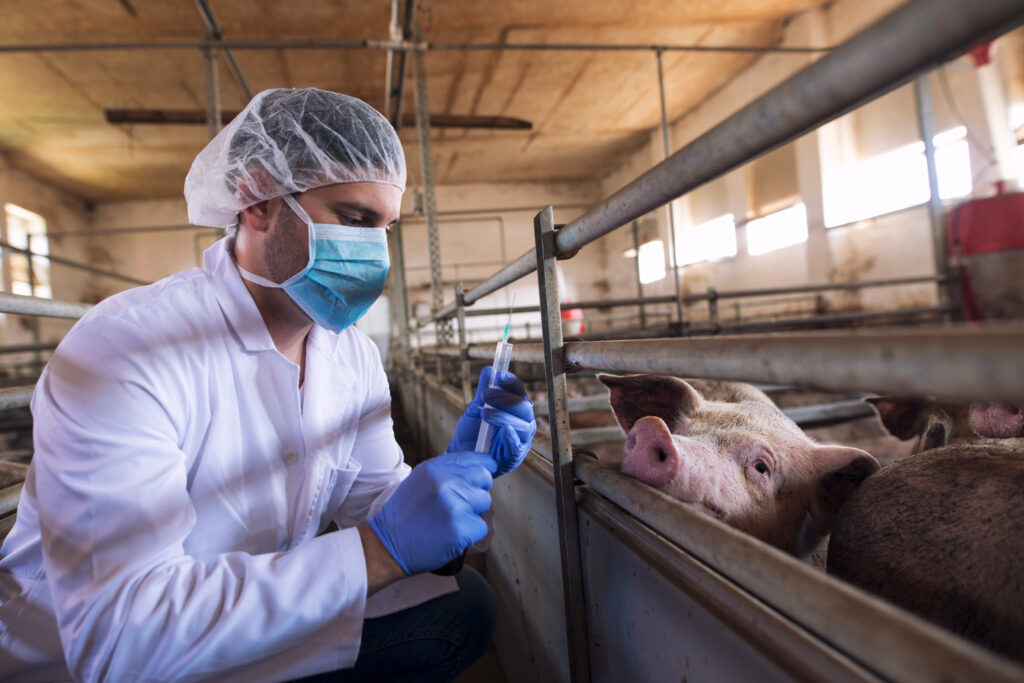Biotechnological vaccines for swine and poultry health: a breakthrough in agricultural production

Argentina impulsa la producción agropecuaria con nuevas vacunas biotecnológicas para porcinos y aves.
Recently, the Argentine government approved three new biotechnological vaccines that promise to revolutionize swine and poultry health. These vaccines aim not only to improve the health of animals, but also to enhance agricultural production, a key sector for the country’s economy.
Through Resolutions 39/2024 and 40/2024, the Secretariat of Agriculture, Livestock and Fisheries authorized the implementation of these vaccines, designed to prevent diseases that affect both pigs and poultry, two of the most important pillars of animal production.
New biotechnological vaccines for swine: improved protection and profitability
The new biotechnological vaccines directed at the swine sector are specially designed to combat two of the most problematic diseases in pig farming: Porcine Circovirus types 2a and 2b, and respiratory disease caused by Mycoplasma hyopneumoniae. These conditions cause not only early mortality in animals but also growth delays in pigs, which directly affect producers’ profitability. In the case of Circovirus, the situation is critical, as it causes the death of pigs in their first months of life, generating significant economic losses.
The authorized vaccines represent a major improvement in animal health and a fundamental protection for pig producers. By preventing the spread of these diseases, they contribute to faster and healthier animal growth, improving the efficiency of swine production in Argentina. This innovation aligns with efforts to ensure a more stable and healthier supply of pork for both the local and international markets.
Avian vaccine: protection against viral diseases in poultry
In the poultry sector, the newly authorized biotechnological vaccine focuses on protecting chickens against three devastating viral diseases: Marek’s disease (MD), infectious bursitis (known as Gumboro disease), and Newcastle disease (ND). These viral diseases can cause major losses in poultry production, affecting both animal health and farm productivity.
The avian vaccine is based on a genetically modified turkey herpesvirus and is administered to chickens in their early days of life, even in ovo (in the egg), to ensure an effective immune response. This solution not only prevents the spread of these diseases but also ensures that birds grow healthier and with fewer complications, which results in greater production of meat and eggs without added risks.
Regulations and safety: the scientific backing for the new vaccines
The development and authorization of these biotechnological vaccines have not been arbitrary. Before approval, the genetic modifications were carefully evaluated by the National Advisory Commission on Agricultural Biotechnology (CONABIA), which determined that they pose no risks to the agroecosystem. This evaluation is fundamental to ensuring that the new technologies are safe for animals, producers, and the environment.
Moreover, before these vaccines reach the market, they must comply with the requirements established by the National Service for Agrifood Health and Quality (SENASA), ensuring that their commercialization meets the necessary safety and quality standards.
Scientific and regulatory backing is crucial for confidence in these technologies, as it ensures that producers can adopt them with the certainty that they will not affect public health or the ecosystem. In addition, the new vaccines provide a modern and effective alternative to animal health problems that have affected agricultural production for years.








